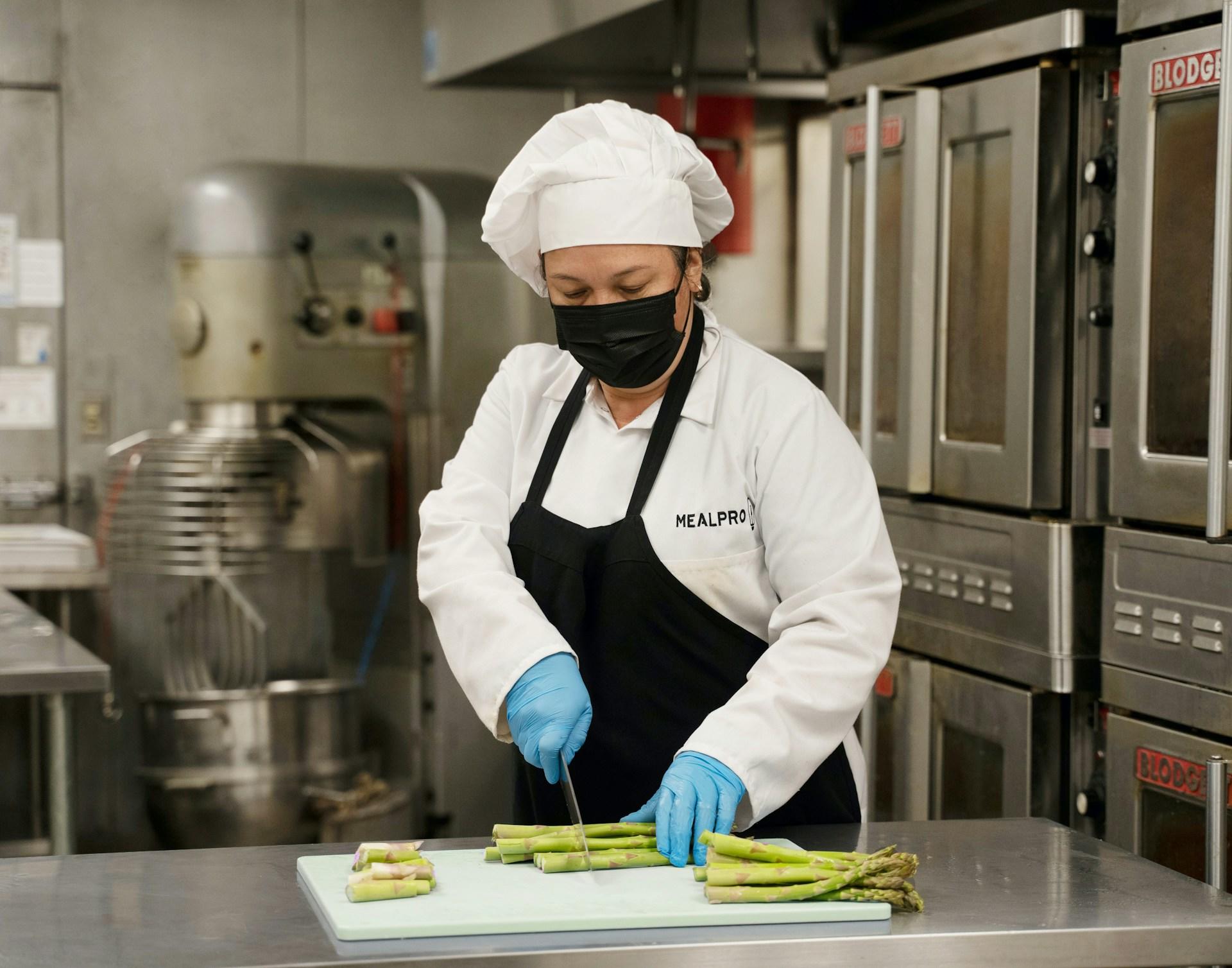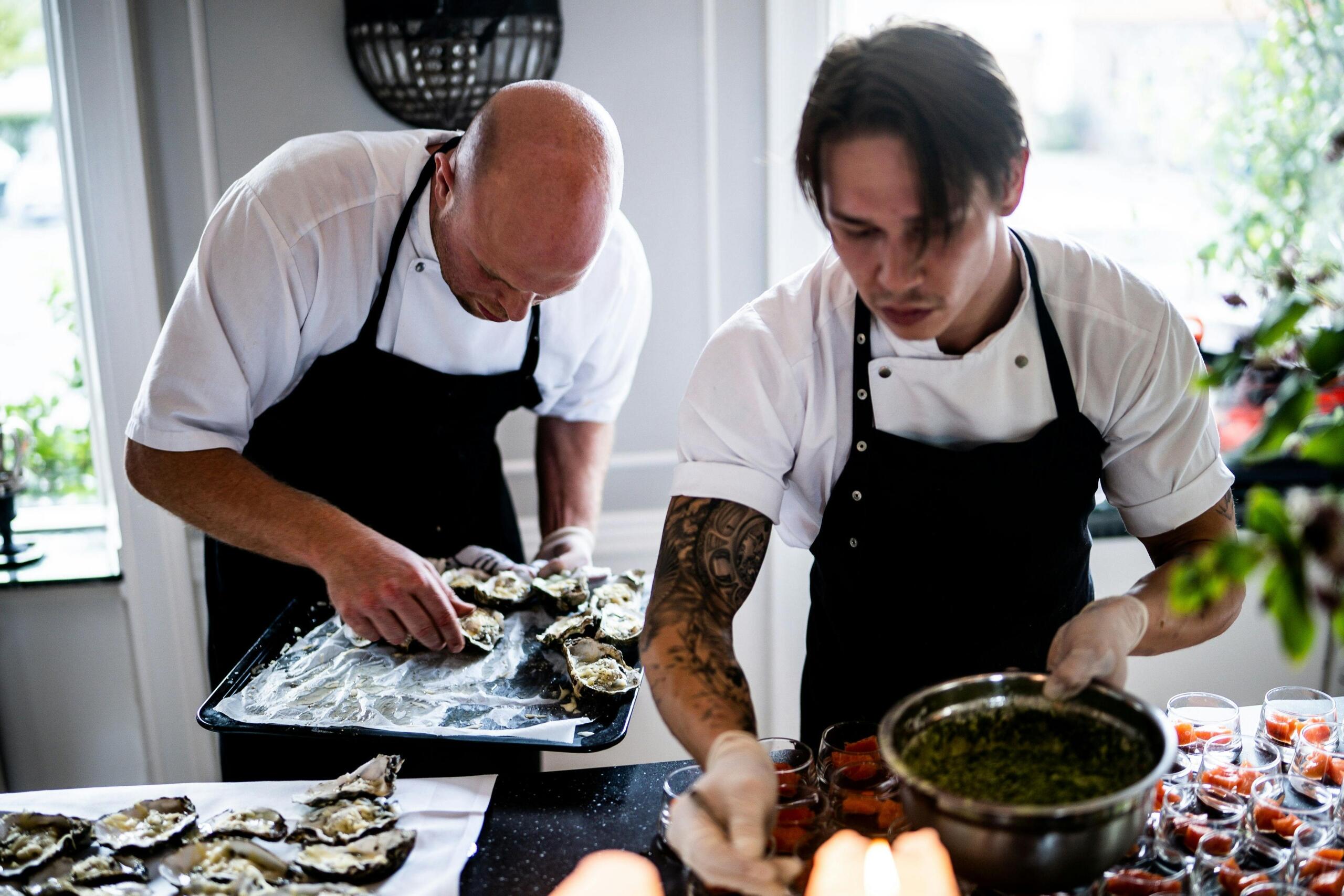Thrive in Alternative Careers for Chefs
- Culinary careers extend far beyond restaurant kitchens, offering paths in education, consulting, luxury travel, personal chef work, media, and more.
- The traditional kitchen brigade system remains the foundation of professional cooking, helping chefs develop discipline, technical skill, and leadership that transfer seamlessly into alternative culinary roles.
- Transitioning into a new culinary career requires strategic steps, including additional education, networking, hands-on experience, and a strong professional portfolio that showcases your best work.
- Modern culinary professionals have more flexibility than ever, empowering them to design careers that align with their lifestyle, passions, and long-term goals.
In the culinary industry, being a chef is generally regarded as the pinnacle role in a food professional's career. Many aspiring cooks envision themselves as the head chef of a luxurious restaurant, or perhaps cozy independent eatery that gets a culinary mention in the Michelin guide.
However, cooking careers are typically not as simple as becoming a chef. The culinary industry has evolved into one of the most diverse and dynamic fields in the world. While the classic image of a chef standing over a steaming stove in a bustling restaurant kitchen still rings true for many, today’s culinary professionals have a far broader spectrum of experiences and opportunities.
From global consulting to high-end private service, from teaching to digital media, the world of food now intersects with lifestyle, health, travel, education, and even technology. In this article, we’ll be taking a look at the skills a chef has and what other potential careers they might make their way into in the food industry.
Let’s get right into it.


Traditional Culinary Careers
While culinary careers now span many industries, the professional kitchen remains the foundation upon which most culinary training is built. Understanding the traditional “kitchen brigade" system offers insight into how modern kitchens run and where you might fit in.
Chef exécutif (Executive Chef)
The Executive Chef is responsible for the restaurant’s culinary identity. They manage everything from menu design and seasonal planning to budgeting, cost control, staffing, supplier relationships, and quality standards. Executive chefs rarely cook full-time; their role blends culinary artistry with leadership and business management.
Chef de Cuisine
The Chef de Cuisine kitchen's leader and is responsible for every dish. They oversee the preparation, cooking, and presentation of every dish produced, and even manage the kitchen's staff. In smaller kitchens, they're usually the most senior leader.
Sous-chef
The sous-chef coordinates stations, trains staff, oversese timing and plating, and step in wherever needed. In many kitchens, the sous-chef is the glue holding everything together, keeping service running smoothly while ensuring that standards remain high.
Chefs de partie (Station Chefs)
Each station chef is a specialist deeply skilled in a specific category of cooking: saucier, poissonier, garde-manger, pâtissier, boucher, and entremetier. These positions require precision, discipline, and mastery over one corner of the kitchen.
Commis / Junior Cook
Commis cooks rotate through stations to learn the fundamentals: knife skills, prep work, sauce bases, stocks, and cooking techniques. This is where most culinary graduates begin.
Apprenti / Apprentice
Apprentices are learners absorbing theory and technique while gaining hands-on training. Their work supports stations and contributes to the kitchen’s efficiency.
Support Roles (Plongeur & Kitchen Assistants)
The plongeur (dishwasher) and kitchen assistant roles may appear entry-level, but they are essential. Many award-winning chefs began here, learning discipline, organization, and the pace of professional kitchens.
The kitchen brigade system, or brigade de cuisine, originated in late 19th-century France and is credited to the legendary chef Georges-Auguste Escoffier, often called the father of modern French cuisine. Before Escoffier’s reforms, professional kitchens were known for being chaotic, overcrowded, and inefficient.
Escoffier, who served as a chef in both military settings and luxury hotels like The Savoy and The Ritz, noticed parallels between military hierarchy and what kitchens desperately needed: clear roles, consistency, and discipline.
French cuisine dominated European culinary development for centuries. Escoffier’s French brigade system changed kitchens worldwide, making French terms standard in professional cookery.
Alternative Careers for Chefs
As food culture expands, many chefs seek paths that allow for creativity, freedom, travel, or a different lifestyle than the demanding restaurant world. Here are some of the most exciting options.
Yacht Chef
A yacht chef prepares gourmet meals aboard luxury yachts, private vessels, or charters. This role blends culinary skill with global adventure.
What Makes This Career Unique:
- Menus change frequently depending on location, weather, and guest preference.
- Creativity is essential: storage is limited, and ingredients must be used wisely.
- Yacht chefs often cook entirely alone, requiring strong multitasking and organization.
Culinary Educator
While some might prefer to change careers entirely, some chefs will gladly take the opportunity to use the same skills they’ve already mastered in the context of education, in culinary school.

This career is an excellent choice for the chef who’s no longer keen on the high octane, high pressure environment of a busy kitchen and would rather use their experiences to prepare other culinary arts students for their busy jobs in the future.
What Makes This Career Unique:
- Teaching foundational techniques of cooking (knife work, sauces, stocks, pastry)
- Instructing advanced subjects like food science, nutrition, and menu engineering
- Designing structured curricula aligned with industry standards
Military Chef
Military chefs sustain the morale and wellbeing of service members. This job combines discipline, structure, and culinary skill. Military chefs often develop strong teamwork and leadership skills valued in civilian kitchens.
It’s easy to see how an experienced chef could make such a transition to military chef, after getting their certifications.
What Makes This Career Unique:
- Preparing meals for hundreds or thousands of personnel
- Adapting to strict nutrition and safety requirements
- Cooking in field kitchens, tents, and temporary bases
- Supporting special events and diplomatic functions
Culinary Consultant
A food consultant is an expert of the industry who specializes in standards, protocols, and works together with businesses to ensure they are operating up to industry standard, providing them with opportunities to improve and grow their business.
To do this job requires a deep insight into the culinary industry and an understanding of the systems in place, which are something that a chef would certainly have all, if not most of under their belt.
What Makes This Career Unique:
- Conducting kitchen audits to improve speed and efficiency
- Training staff on technique, sanitation, and plating
- Assisting new restaurants with concept launches
- Advising food startups on branding, flavor profiles, and product development

Personal Chef
Personal chefs prepare customized meals in private homes. This option allows chefs to build client relationships and tailor menus to unique needs.
What Makes This Career Unique:
- Allergy-friendly and special-diet cooking (keto, vegan, low-sodium)
- Small dinner parties and intimate events
- Budgeting, grocery shopping, storage solutions
- Managing client communication and scheduling
If a chef chooses not to go down one of the less orthodox routes, it might be worth considering a brief return to study in order to have the highest chance of success with their new calling. There are many different jobs in the culinary world.

Transferable Skills of a Chef
Let’s briefly go over some of the transferable skills from the chef profession that make chefs some of the most diversely talented workers on the job market.
| Skill: | Opportunities: |
|---|---|
| Cooking Skills | Chefs are of course the crème de la crème when it comes to cooking skills, they can not only follow their recipes, but innovate with ingredients to create new and exciting dishes. This skill is transferable to almost any other culinary position, as it is a key part of the understanding of the industry itself… I.e. how food works. |
| Leadership | Chefs are leaders by trade, managing the restaurant staff and organizing the complicated mechanism that is a kitchen. This naturally means that chefs can use this leadership in other positions of management and can take advantage of the increased salary offered by positions of leadership. |
| Creativity and Ingenuity | Chefs need to think on the fly to come up with new dishes and to survive in the competitive business of food and hospitality. In some ways, this makes a chef an artist and gives them excellent critical thinking skills. A chef could use these skills to become a critic themselves, or to devise their own unique products for commercial sale. |
| Problem-solving | Chefs run into all kinds of unexpected problems while running and maintaining a kitchen, as a result, problem-solving becomes a mandatory part of their skill set. Problem-solving is perhaps one of the most universally applicable and sought after skills in any industry, so chefs have a leg up on the competition when it comes to changing careers! |
Having access to all of these skills makes you irresistible to employers; therefore, studying to become a chef is one of the best things you can do if you’re interested in the culinary world, even if you don’t end up becoming a chef in the long run.
If you’re interested in learning about chef’s skills in more detail, we have another article here on the Superprof Blog, talking about them in detail. Make sure to check it out!
Now that we’ve looked at what makes a chef so versatile on the job market, let's take a look at how one might transition to a new role, while still remaining in the scope of the culinary industry.
Writer/Blogger/Food Influencer
In the age of the internet, one of the most sought after and idealized careers is that of having some degree of fame or relevancy online. Chefs have an easier time than most at doing this, since their expertise, critiquing and social skills lend themselves perfectly to entertaining an online audience.
How to Transition to a New Culinary Career
Career shifts can feel overwhelming, but breaking them into steps helps clarify the path.
Education and Certification
Start by strengthening your foundation through targeted education and certification. To move into specialized roles, consider:
- Wine certifications (WSET or Sommelier courses)
- Nutrition or dietetics programs
- Business or hospitality management diplomas
- Pastry intensives
- Sanitation certifications (ServSafe, Food Handler, Food Safety Manager)

Education broadens your expertise and signals to employers that you are serious about your new direction.
The real evolution is to learn something new every day - it’s very important for chefs to share what they have discovered.
Chef Alain Ducasse
Networking
Networking is another essential part of transitioning. The culinary industry thrives on relationships, and even one well-timed introduction can open unexpected opportunities. Consider:
- Attending food events, tastings, and trade shows.
- Connecting with chefs or consultants on LinkedIn.
- Joining associations (ACF, ICCA, Chefs Collaborative).
- Reach out to former instructors or coworkers.
A single introduction can open doors in this industry. Staying connected with former instructors, colleagues, and mentors can also lead to valuable referrals or collaborations.
Gaining Experience
Hands-on experience is equally important. Before committing fully to a new path, test it through short-term opportunities. Consider:

- Assisting a food photographer or stylist
- Teaching a community cooking class
- Volunteering at pop-ups or festivals
- Taking a temporary guest-chef role
- Working onboard a yacht for one season
These experiences allow you to explore new environments while evaluating what truly fits your interests and strengths. Testing a role before fully committing helps ensure the right fit.
Building a Portfolio
Finally, build a polished, professional portfolio that showcases your abilities.
- Photos of dishes
- Sample menus
- Food costing documents
- Videos of cooking demonstrations
- Testimonials from clients or employers
- Certificates and awards
Testimonials from clients, employers, or instructors add credibility, while certificates and awards highlight your achievements. Your portfolio is your culinary “resume”: make it shine.
Explore Your Culinary Career
The culinary world is far richer and more diverse than the traditional kitchen might suggest. Whether you dream of crafting menus at sea, teaching the next generation of chefs, consulting for restaurants, or curating intimate meals for private clients, there is a culinary path tailored to every passion, lifestyle, and skill set.
As the industry continues to evolve, chefs today have unprecedented freedom to shape careers that reflect their creativity, values, and ambitions. By investing in education, building meaningful connections, exploring hands-on opportunities, and showcasing your talents through a strong portfolio, you can confidently pursue a culinary future that is both fulfilling and uniquely your own.
References
- "Culinary Institute of America." https://www.ciachef.edu/
- Team, E. (2025, November 21). From corporate burnout to culinary fulfillment: the great career Pivot. Escoffier. https://www.escoffier.edu/blog/value-of-culinary-education/from-corporate-burnout-to-culinary-fulfillment/
Summarize with AI:
















